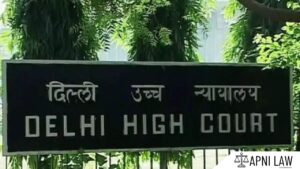The Supreme Court on July 19, 2024 has agreed to examine a challenge against the selection and marking process of the Punjab & Haryana Superior Judicial Service Exam 2023-24. The petitioner claims the Mains (written) Exam was marred by arbitrary markings.
Chief Justice of India DY Chandrachud, along with Justices JB Pardiwala and Manoj Misra, has issued a notice to the Registrar General of the Punjab & Haryana High Court, scheduling the hearing for July 26.
Observation
Advocate Prashant Bhushan, represented the petitioners. He emphasized that authorities called only 10 out of 549 candidates (297 for Punjab and 252 for Haryana) for interviews and ultimately selected just 5. Just 5 were ultimately selected. He argued that candidates with accurate answers received disproportionately low marks. Citing examples where correct responses were awarded only 2/10 or 3/15.
Bhushan pointed out a specific case where a candidate, who failed in the Punjab & Haryana exam. They excelled in the more challenging Delhi Higher Judicial Services exam, receiving nearly double the marks in similar subjects.
Purpose
The examinations aimed to fill 21 vacancies in the Punjab Superior Judicial Services and 25 in the Haryana Superior Judicial Services. However, only 5 candidates were selected for 46 vacancies. Bhushan referenced the Supreme Court’s decision in Malik Mazhar Sultan (3) v. UP Public Service Commission.
The rule mandates a 1:3 ratio of vacancies to successful candidates, meaning authorities should have interviewed 138 candidates.
Furthermore, the petition highlights that authorities did not fill any vacancies for reserved categories, including Scheduled Castes.
Also, Backward Class A, EWS, PwD, or Ex-Servicemen in either state. Bhushan stressed that a minimum of five percent marks in Civil Law-I and Civil Law-II would have allowed at least two candidates from these categories to qualify for the viva-voce.
Conclusion
The petitioners are seeking several reliefs such as the annulment of the 2024 exam results. A reevaluation of the Civil Law papers by an independent expert committee. Also, a revised result in line with the Justice Sikri Committee’s recommendations in Pranav Verma v. High Court of Punjab & Haryana. They also call for adherence to the 1:3 candidate ratio stipulated in the Malik Mazhar Sultan case.
The Supreme Court will address these concerns in the hearing scheduled for July 26.











